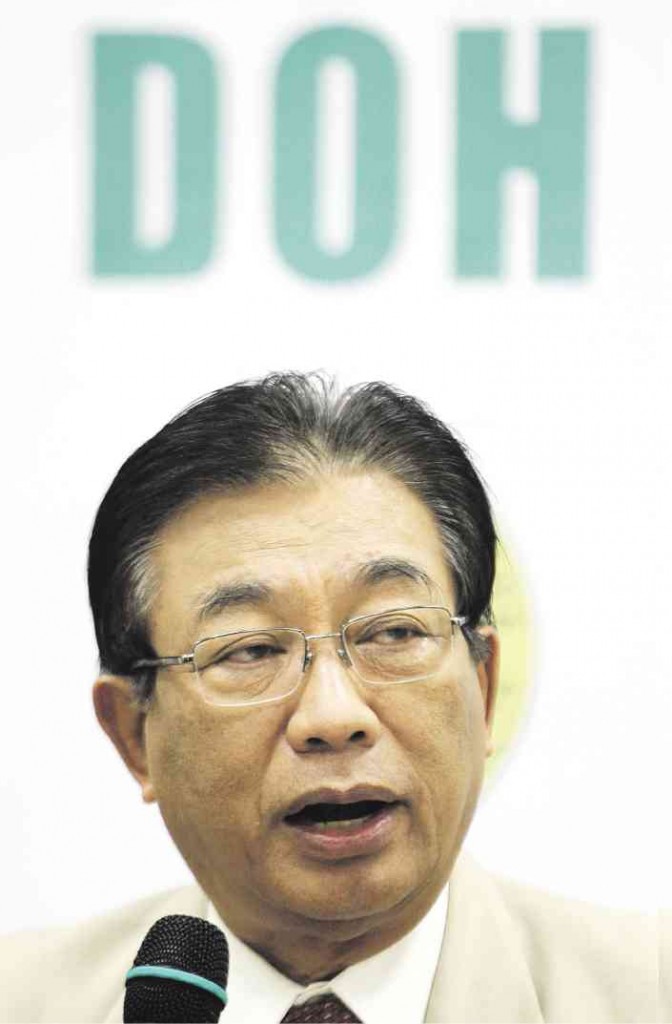Taking bold steps toward education against cancer
While most of us know that cigarette smoking is the No. 1 risk factor for lung cancer, few realize that it is also the single biggest risk factor for bladder cancer.
Interestingly, almost all cancers are curable if they are detected early enough. This is because early-stage cancers tend to be smaller and thus, are easier to remove surgically or more likely to shrink when treated with chemotherapy or radiotherapy.
Sadly, one in eight deaths worldwide are due to cancer, a disease that causes more deaths than AIDS, tuberculosis and malaria combined.
Indeed, these are just some of the things that a lot of Filipinos may be able to learn had there been regular forums that allow sharing of these information.
Health Secretary Enrique Ona, during a recent media briefing on cancer, stressed that if more people knew about cancer and the treatments available, then there would be fewer cancer-related deaths in the world. “Being informed is the crucial first step in the prevention, early detection and optimal management of cancer,” he said.
Article continues after this advertisementLike minded
Article continues after this advertisementThis is the heart of the campaign that a group of like-minded organizations initiated during that same briefing held in Makati City early this month.
Called ONCOURAGE, this health information advocacy was initiated by Novartis Healthcare Philippines (NHP) together with the Philippine Society of Medical Oncologists (PSMO), Philippine Society of Hematology and Blood Transfusion (PSHBT), Philippine Charity Sweepstakes Office, Philippine Foundation for Breast Care-Kasuso, Touched by Max Philippines and Balikatang Thalassemia.
The advocacy seeks to form a panel of cancer specialists and cancer advocates who will be tasked to provide health information and updates to the public, media and even healthcare professionals in order to enhance cancer prevention, detection and management in the country.
PSHBT president Dr. Ma. Angelina Mirasol said that the holding of these events is important considering that public awareness on cancer prevention in the Philippines is low. “Cancer is 90- to 100-percent curable, if detected early. Unfortunately, most Filipino cancer patients consult their doctors only when their cancer is already in its advanced stage.”
PSMO president Dr. Felycette Gay Martinez-Lapus added that the holding of regular lectures under the ONCOURAGE Health Information Advocacy is crucial considering that cancer is the third leading cause of sickness and death in the country, with cancer of the lung, breast, cervix, liver, colon and rectum, prostate, stomach, mouth, ovary and blood cells (leukemia) topping the list.
Early recognition
According to the World Health Organization, increased awareness on possible warning signs of cancer, among doctors, nurses and other healthcare providers as well as among the public, can have a great impact on the disease. Furthermore, the WHO stressed that the ability to recognize possible warning signs of cancer and taking prompt action could lead to early diagnosis.
The early signs of cancer may include lumps, sores that fail to heal, abnormal bleeding, persistent indigestion and chronic hoarseness. Being able to identify a number of these signs is particularly relevant for cancers of the breast, cervix, mouth, larynx, colon and rectum, and skin.
However, a more reliable means is to undergo regular exams like the more established screening methods—that have been proven to reveal cancer—like Pap smear for cervical cancer, antibody blood test for prostate cancer and mammogram for breast cancer.
Interestingly, there are also emerging technologies that are proving to be effective at picking up early signs of cancer in the bloodstream or next-generation imaging techniques that can identify and isolate a tumor within the body.
Improving lives
Organizers of ONCOURAGE also announced that they have also collaborated with The Max Foundation (TMF), a US-based nonprofit advocacy and patient support organization dedicated to improving the lives and survival rates of patients with blood cancer and rare cancers worldwide.
TMF has been one of the partners of NHP in implementing the Novartis Oncology Access (NOA) program, an innovative shared-contribution access program that helps underprivileged Filipino patients receive effective cancer therapies.
Since 2002, the program has benefited over 3,000 socially disadvantaged Filipino cancer patients. From 2008 to 2011, benefits provided by the program to Filipino patients were valued at over P3 billion.
To date, there are 1,300 active NOA patients in the Philippines being treated by almost 300 partner doctors. “This advocacy is part of our company’s social responsibility to care for and cure Filipino patients with cancer,” said Bibiane Fontejon, oncology head of NHP.
